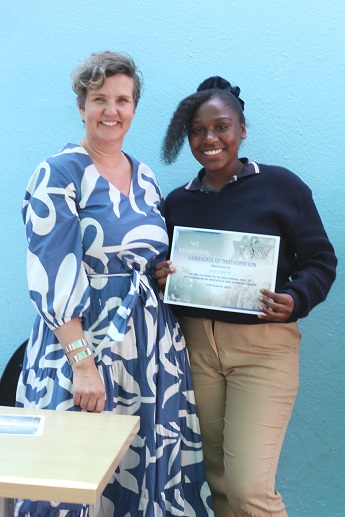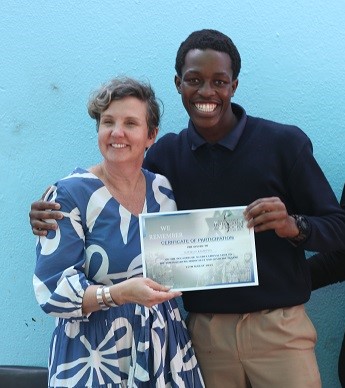The Metropolitan College Learners Draw Lessons from Holocaust and Genocide History
By Thembi Moyo
The Johannesburg Holocaust and Genocide Centre opened its doors recently to learners from The Metropolitan College, offering them a powerful and sobering journey into some of history’s darkest chapters. For many of the Grade 10 and 11 students, the experience was not only educational but deeply personal, leaving them with lessons they say are urgently relevant to South Africa today.
The visit, organised by teachers and facilitated by the Centre’s education team, gave students the opportunity to engage directly with exhibits, survivor stories, and the broader history of genocide. Addressing the group afterwards, a representative from the Centre explained the importance of confronting these painful histories.
“Genocide is a very specific crime the deliberate attempt to wipe out a group of people simply because of who they are,” she told the learners. “We look at the Holocaust, in which six million Jews were murdered during World War II, and at the Rwandan genocide, where nearly a million Tutsi people were killed in just 100 days in 1994. These are not just stories of destruction. They are also stories of courage, of those who risked their lives to protect others.”
The Holocaust and Rwandan genocide form the Centre’s two primary case studies. Both, staff explained, illustrate how prejudice, discrimination, and unchecked hatred can escalate from words to violence and eventually, to mass murder.
For the Metropolitan College learners, the most striking part of the visit was the personal artefacts on display. Objects such as shoes, suitcases, clothing, and even machetes used during the Rwandan genocide gave the tragedies a human face. “It really touched us,” one learner said. “It made the stories more real, and we could relate to them in a way that history books sometimes don’t allow.”
Several students connected the lessons to issues facing South Africa today. They spoke openly about xenophobia, noting that the same hatred which fuelled past genocides still exists in modern society. “In our country, we are seeing hatred against foreign nationals,” another learner explained. “If we don’t deal with it, it can lead to violence on a large scale. We must choose to treat each other with respect, love, and dignity.”
Teachers who accompanied the learners said the trip was invaluable in shaping not only academic understanding but also moral responsibility. One educator reflected: “These visits help young people see history not as something far away, but as something that touches who we are and who we want to become. It challenges them to build a society where such atrocities can never happen again.”
The day ended with a certification ceremony, during which each Metropolitan College learner received a certificate for attending the Holocaust and Genocide education programme. Organisers expressed gratitude to the Centre for creating a safe space for learning and reflection, while staff emphasised the role of young people in shaping the future.
“As you leave school in the coming years, you will step into leadership in our society,” the facilitator reminded the students. “We need you to make the right choices, to be strong, and to stand up for justice. That is how we honour the victims by ensuring history does not repeat itself.”
For the learners of Metropolitan College, the message was clear: the past is not just about memory it is a guide for building a better future.
About the Johannesburg Holocaust and Genocide Centre
- The Centre was officially opened in 2019 in Johannesburg.
- It explores the histories of the Holocaust and the 1994 Rwandan genocide as key case studies.
- Through exhibitions, education programmes, and research, it highlights the dangers of prejudice, discrimination, and hatred.
- The Centre also hosts workshops, film screenings, and survivor talks to encourage dialogue about human rights, justice, and building inclusive societies.





